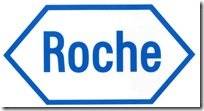This post was first published on 3rd March, 2011.
The war between Stanford and Roche with respect to ownership of certain diagnostic processes is now being argued before the US Supreme Court. The dispute started with Stanford filing an infringement suit against Roche alleging infringement of its patents relating to methods for evaluating treatments for HIV. Roche asserted that it was not liable for patent infringement because it has ownership in the patents on account of its take over of Cetus, a company that developed the methods.
One of the inventors of the methods, Holodniy, joined Stanford in 1988 and started pursuing research under a project funded by National Institute of Health. While researching at Stanford, Holodniy carried out some work at Cetus and contributed to the invention in question. While researching for Cetus, Holodniy signed an agreement transferring his rights in the invention to Cetus. Roche, after taking over Cetus, claims that it has ownership as a result of such assignment.
After the Federal Circuit decided against it, Stanford is now arguing before the US Supreme Court that the ownership rights of the inventions developed by Holodniy vests with it under the Bayh-Dole Act. It points out that the ownership of the inventions by virtue of being developed under a federal research grant from the National Institute of Health vests with it as per the statute. It argues that the primary objective and language of the statute suggests that the inventor does not have the right to transfer ownership to a third party.
In response, Roche is arguing that the Bayh-Dole Act does not provide for automatic transfer of ownership. It also points out that the ownership transfer if at all can happen if the research was done during the course of work under federal funding. Many briefs have been submitted in support of both parties.
Ownership of IP has always been a highly litigated aspect and this case is just one facet of the ownership complexities. Fights among inventors, companies and inventors, universities and inventors and so on are commonplace in the IP world. As India does not have a Bayh-Dole equivalent, ownership of IP from universities is largely defined contractually. As patent licensing kicks off in universities, ownership wars are around the corner in India.
Authored by Dr. Kalyan C Kankanala.
Image Source here



